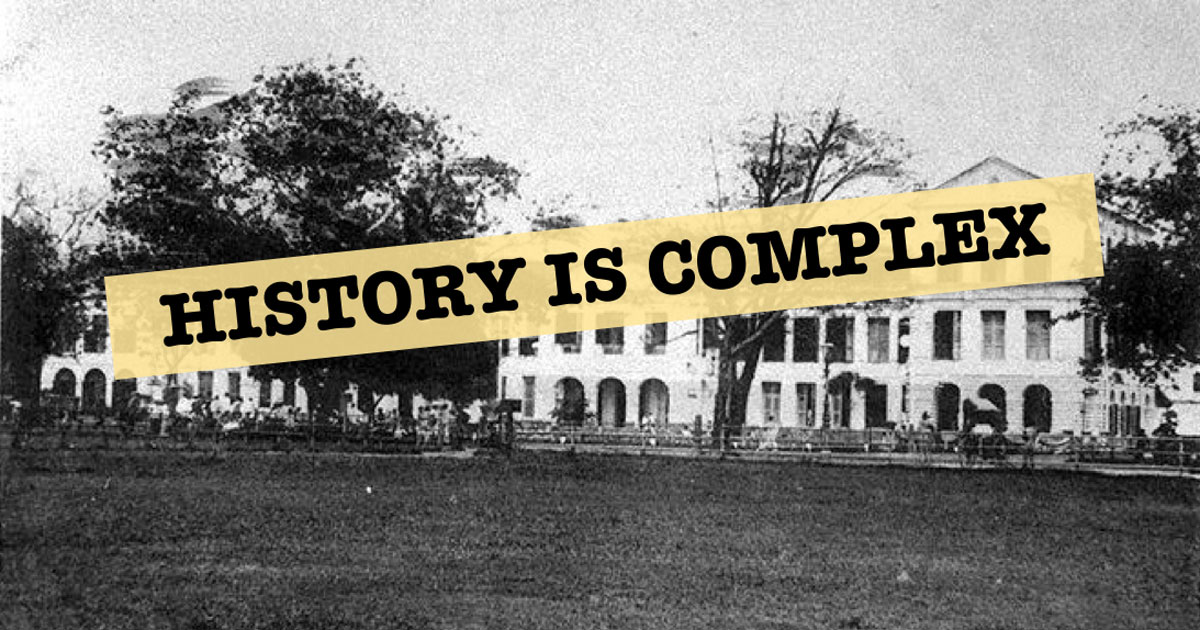History is full of stories that can be viewed and remembered from many perspectives.
But some perspectives can be more dominant than others in our collective thinking, which results in certain aspects and details being forgotten.
This was a point raised by student Eugene Lim in a Straits Times article on Sept. 24.
Lim, a Yale University student studying computer science and history, said that Singaporeans' knowledge of history is incomplete because they only remember it by "past is often limited to key figures, events and places".
First school in Singapore is not RI
To illustrate his point, Lim brought up the interesting case of the first school to be set up in colonial Singapore.
He explained that Raffles Institution is widely believed to be first school in Singapore, but it actually isn't.
According to him, there are records (although very few) showing that a school called the Singapore Malay Female-School (SMFS) was founded in May 1823, about a month earlier than RI, which was founded on Jun. 5, 1823.
Lim cited a surviving managing committee report of the SFMS, pointing out that its mission was to "spread Christianity 'among the lower classes of the female natives'".
Among other things, he said the school taught needlework, Malay, writing, and arithmetic.
Students were also taught to recite catechisms and read scripture.
Interestingly, the school's list of donors included familiar surnames such as Raffles, Farquhar, Napier, and Maxwell.
Re-examining history
New information like this challenges popular notions of history, and Lim argued for questioning mindsets that looked beyond such notions.
Taking Lim's article into account, there are indeed always new ways of understanding events and people.
For instance, author Nadia Wright challenged the dominant image of Stamford Raffles by highlighting that he might have really been a "psycho boss" as he mistreated his subordinate William Farquhar.
Additionally, the dominant narrative of Singapore being kicked out of Malaysia was also challenged with the Albatross File, suggesting that separation from Malaysia involved a long process of negotiation.
Essentially, it is important to remain curious about the stories that we think we already know.
One way to do that would be to unshackle ourselves from the constraints of the dominant narrative.
History can also be encountered in various ways, such as through fictional stories or first-hand accounts of a particular event.
See the realities of S’pore’s 1964 racial riots from these stories’ perspectives
With history, there can never be a complete enough picture.
Top photo composite image from sgletgo & NAS.
If you like what you read, follow us on Facebook, Instagram, Twitter and Telegram to get the latest updates.
